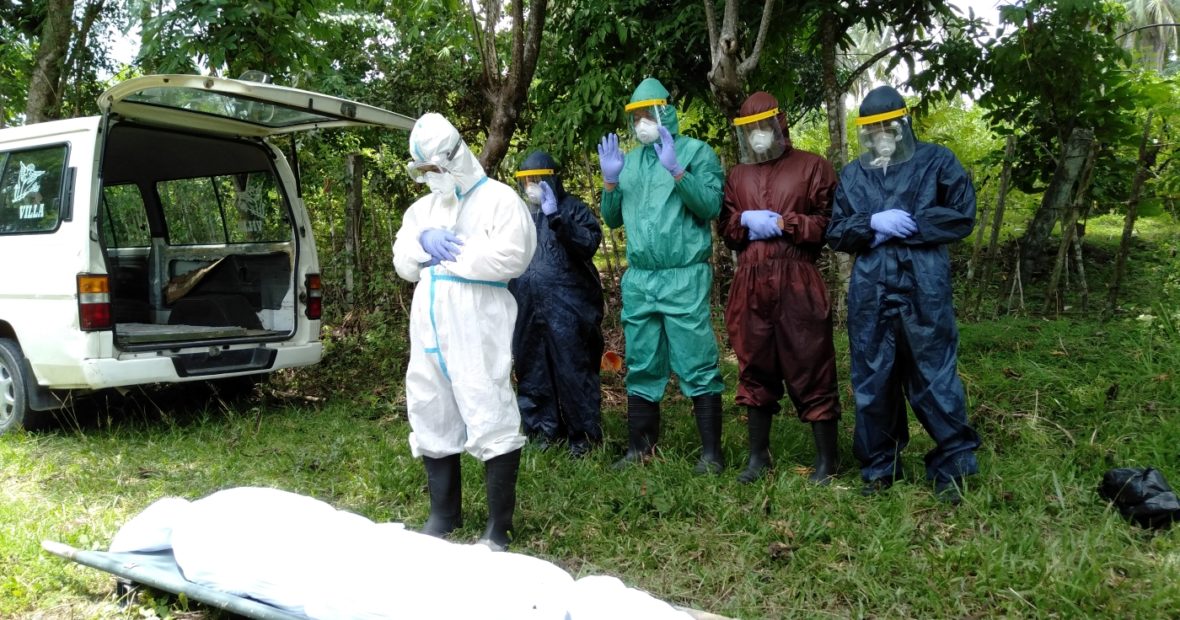Sylvain Froidevaux, Doctor of Social Sciences, University of Lausanne, in his (French) article “L’humanitaire, le religieux et la mort” (“Humanitarian Action, Religious Ritual and Death”), published in the International Review of the Red Cross (December 2002, Vol. 84), explores different perspectives on the management of dead bodies and funeral rites.
“Over and above their differences, humanitarian workers and clergy have one point in common: they both come into contact with death and suffering. In such circumstances, however, they each have their own approach. The religious approach is to provide solace for the dying and, later, for the bereaved, through a series of rituals. Humanitarian workers, for their part, are more concerned with tasks such as recovering bodies, informing families of the death of their loved ones and helping them to cope with the consequences. In cases where bodies cannot be recovered (missing persons), both humanitarian action and funeral rites must be adapted in such a way as to relieve the distress of families and enable them to start the grieving process.”

